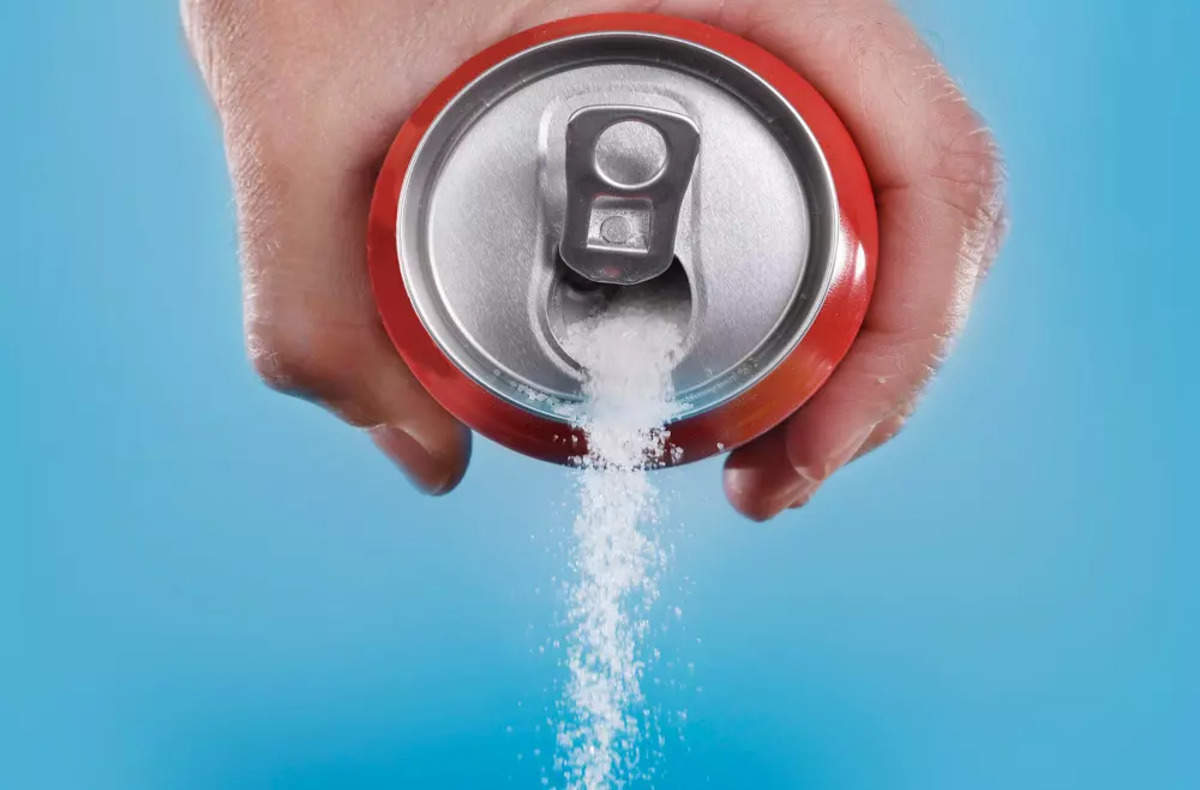38% Urban Indians Consume Artificial Sweeteners Every Month: Survey
Key Highlights :

Article: Fuelled by the buzz around the World Health Organization (WHO) categorizing aspartame as “possibly carcinogenic to humans”, a recent survey by Local Circles found that 38 per cent urban Indians consume artificial sweeteners every month. As many as 11,342 people responded to the question of which 38 per cent people confirmed their consumption of artificial sweeteners in food every month.
Aspartame is a popular artificial sweetener used in food products like diet soda, sugar-free gums, etc. Apart from this, the Indian food regulatory body, Food Safety and Standards Authority of India (FSSAI), has allowed the use of five other artificial sweeteners. These include saccharin sodium, aspartame, acesulfame potassium, sucralose, neotame, and isomaltulose.
The survey which received as many as 23,000 responses found that 1 in 3 urban Indians consuming artificial sweeteners, consume diet soda or chewing gum. Several respondents of the total of 4,310 consumers who responded to this query indicated consumption of these sweeteners in more than one food product. Besides diet soda and chewing gum, both being consumed by 32 per cent of the respondents, other food products were also found to be in rising trends. As many as 26 per cent people indicated consumption of energy drinks, while 18 percent consume sugar free chocolates. Meanwhile, 18 per cent of consumption was recorded for sugar free ice creams, 5 per cent for energy bars and 37 per cent indicated other foods and drinks.
The International Agency for Research on Cancer (IARC), WHO’s cancer research arm, has not ruled that there is conclusive proof of a link between aspartame and liver cancer, as suggested by some research papers. In May 2023, the global health body, WHO warned against artificial sweeteners stating that these products are not helpful in losing weight. In fact, the consumption of these increases the risk of type 2 diabetes and cardiovascular diseases. After a meeting of the IARC’s external experts, the cancer research body’s ruling in June is based on all the published evidence thereby ending confusion among the public over varied reports.
However, 90 per cent of the respondents said they want food brands to display the use of artificial sweeteners prominently on the front of the pack. Several food and beverage brands, who have major consumers as minors, use artificial sweeteners like aspartame, sucralose and steviol glycoside in their energy drinks, gums, ice creams etc. Few also say zero sugar on their packaging. “By the health regulator at least making it mandatory for all such products to carry prominently on the front of the pack the fact that the product has artificial sweeteners, at least parents will be able to make an informed decision,” Local Circles said in its report.
The use of artificial sweeteners has been a highly debated issue globally. Though the World Health Organization (WHO) has warned against the use of artificial sweeteners, stating they increase the risk of type 2 diabetes and cardiovascular diseases, the International Agency for Research on Cancer (IARC) has not concluded that there is definitive proof of a link between aspartame and liver cancer. Nevertheless, the survey conducted by Local Circles in India found that 38% of urban Indians consume artificial sweeteners every month.
Food and beverage companies should make it mandatory to display the use of artificial sweeteners prominently on the front of the pack. This will help parents make an informed decision and protect their children from consuming products that have potentially harmful effects. Moreover, it is important to keep track of research studies and reports to stay updated about the health risks associated with the consumption of artificial sweeteners.
